
Pet food
Storing pet food in your garage is basically like inviting pests into your home for a delicious snack. But if you must keep pet food in the garage (or even when it’s inside your house), be sure that it is inside a tightly sealed plastic or metal container. Rodents can easily chew through paper or cardboard packaging.

Oily rags
Never store oil-soaked rags in your garage. Spontaneous combustion (and a devastating fire) can occur when oily rags are stored where the internal heat that is generated isn’t allowed to escape.

Books
You want to save your favorite books from childhood to give to your kids or grandkids someday, but storing them in the garage isn’t the best solution. Silverfish are insects that thrive in dark, damp environments such as garages, basements, and crawl spaces and the bugs love to feast on starchy substances, such as the glue that binds books.
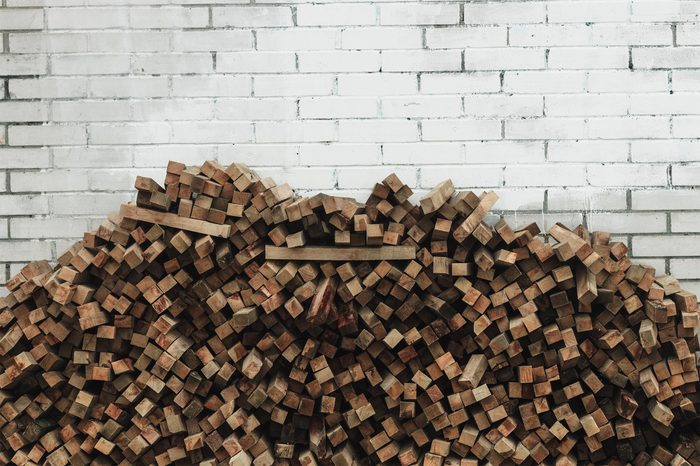
Firewood
While firewood may be an important year-round staple in your home or backyard, it’s also a magnet for pests that will happily make the jump into the house. So store firewood at least 20 feet away from the house—that includes the garage—and only bring in as much as is necessary.
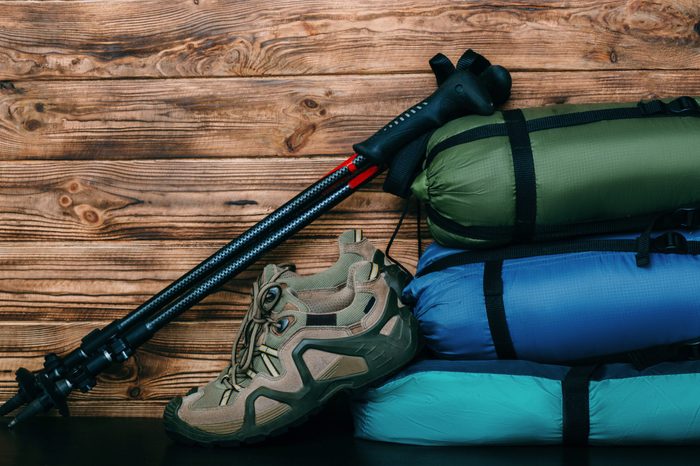
Sleeping bags
Fluctuating temperatures and humidity are not ideal conditions for storing fabric. It can get moldy, and rodents love to chew it. It’s tempting to stash sleeping bags with other non-fabric camping supplies in the garage, but don’t do it! Store sleeping bags, clothes, and other fabric items inside your house.
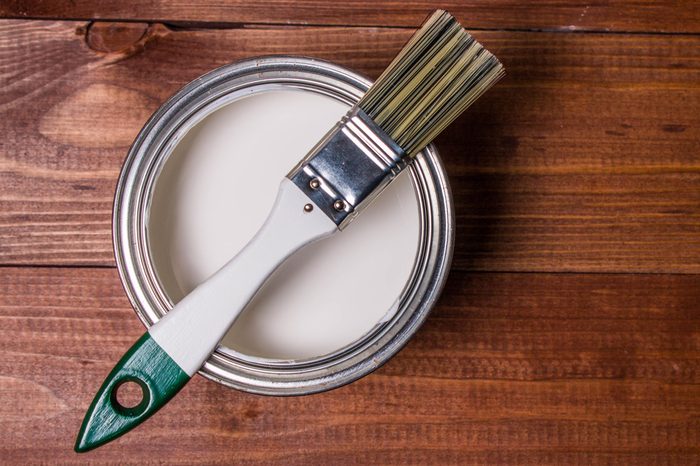
Paint
Extreme heat and extreme cold can alter paint formulas. So if the temperature in your garage is a rollercoaster throughout the year, it’s not an ideal place for storing your leftover paint. Check the paint can label for recommended storage temperatures. But if your paint happens to freeze during the winter, it’s not necessarily ruined. Make sure that you store it upside down, too. Rethink how you keep these household items—you’re probably better off storing them upside down.
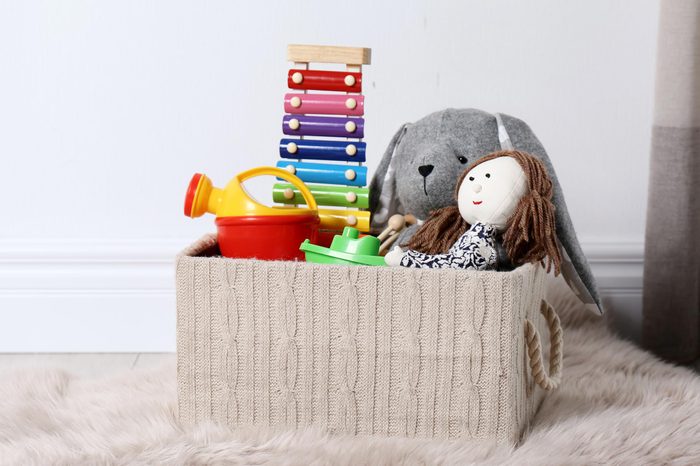
Toys
Your child’s favorite toys—especially stuffed animals and other plush toys—should be stored in an area other than the garage. Dust mites, other insects and even mice may have their way with the toys if given the chance. If you must store toys in the garage, make sure they are secured in airtight containers. Check out these 12 awesome ideas for storing toys.
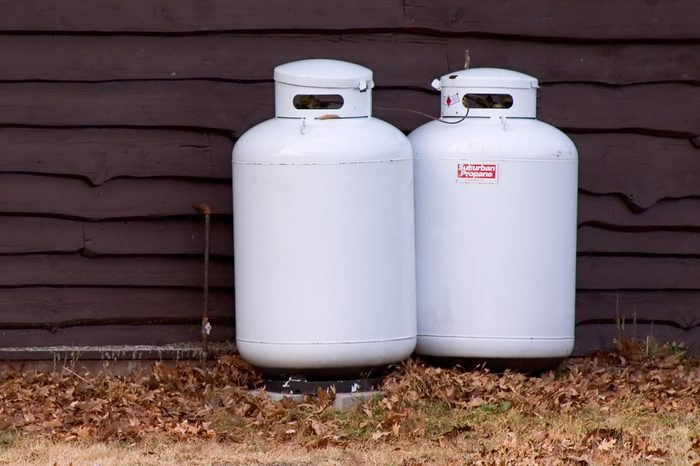
Propane tanks
A propane tank is usually safe, but if it happens to leak in an enclosed space such as your garage, any small spark—even starting your car—can cause a fire. So never store your propane tanks in your garage or storage unit. And here are 10 other things you should never keep in a storage unit.
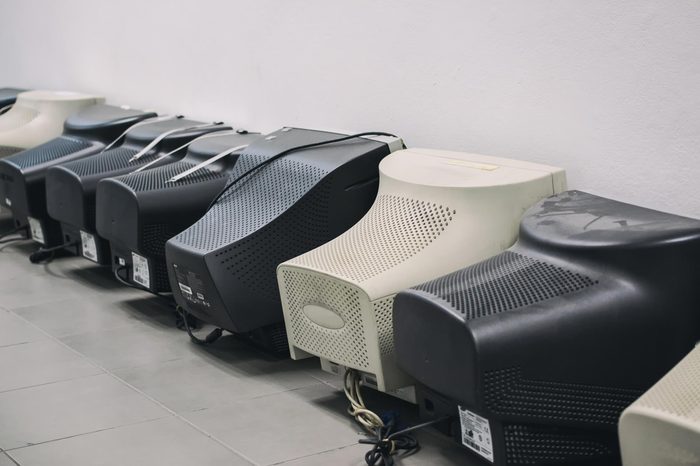
Old computers
Humidity and temperature ups and downs can cause computers and other electronics to short out. Always store electronics inside your home.

Printed photographs
Printed photos (especially those that don’t have digital copies) should never be stored in the garage; heat, cold and humidity will quickly ruin those cherished memories. Instead, here are the best ways to store old print photos.

Important papers and files
Don’t risk keeping those important papers such as medical records, passports and birth certificates in your garage. Same goes for photos as they could be damaged by water and excess moisture in the air. If you need to keep some paper items in the garage, store them in an air-tight plastic container.
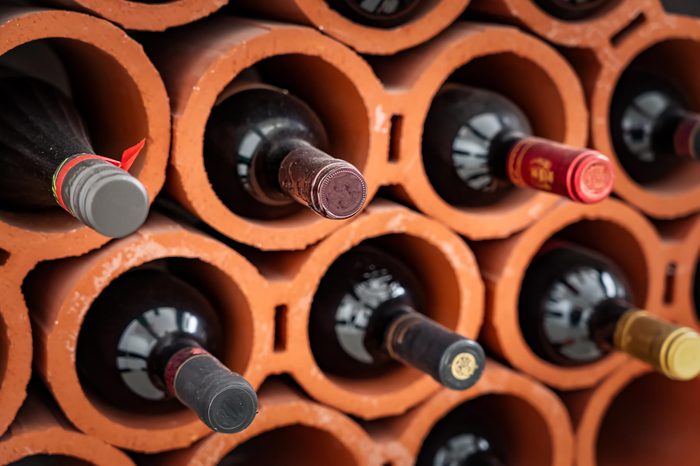
Wine
Fluctuating temperatures and humidity can actually alter the taste of wine.
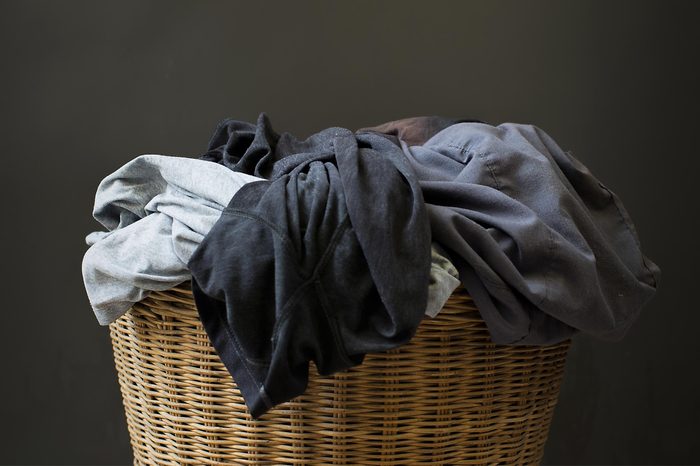
Old clothing
Consider storing your old clothing—whether your favorite dresses, winter coats or sweaters—someplace other than the garage. Clothes are prone to moth infestations. Fur and leather also don’t hold up well when stored in damp areas. Keep clothing in sealed plastic bags and store in another area of the home.
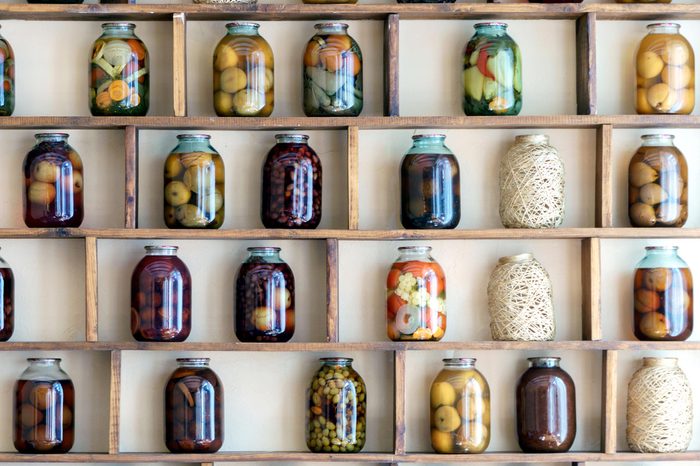
Canned food
Contrary to what you may think, canned foods are not spoil-proof and should be stored at temperatures between 50 and 70 degrees. Humidity in a garage can also cause cans and metal lids on glass jars to rust, potentially causing a chemical reaction with the food inside. In addition, food attracts pests, which you don’t want anywhere near your home!

Rugs and carpeting
Rolled up rugs and carpeting make great homes for insects and mice so consider storing them in a spot other than your garage. The rug and carpet fibers will also absorb moisture and odor, which may ruin them if left for long periods. Now, learn the things you should never store in your attic.